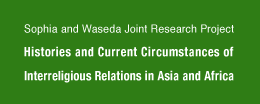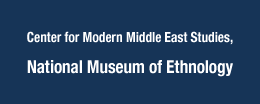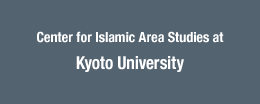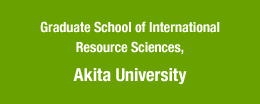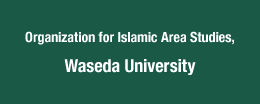Lecture by Prof. Mohamed Abdel Aal
"Research Workshop on the Rural Egypt and Agricultural Cooperatives "
| Date and Time: | March 23, 2018, Friday 16:30-18:30 (19:15, actual closing time) |
| Venue: | Sophia University, Yotsuya Campus Bldg. 2, 6 Floor, Room 615a |
| Programme: | |
| 16:30-17:00 | Mr. Ichiki Tsuchiya, Institute of Developing Economies (JETRO-IDE) |
| “Agriculture Sector Development in Egypt” (in Japanese) | |
| 17:00-18:30 | Professor Mohamed Abdel Aal, Cairo University, Faculty of Agriculture “The Agricultural Co-operative in Egypt: A History of Challenges and a Future of Opportunities” (in English) |
Summary:
Presentation by Mr Tsuchiya:
Agriculture in Egypt has been facing drastic changes in the last decades. Despite its relatively large shares in employment (35% and 27% in the 1990s to 2010s, respectively), its shares in GDP have decreased from 20% in 80s to 11% in recent years. Following a rapid increase in the 90s, land reclamation has maintained its level with the current agricultural land of approximately 38,000㎢. Agricultural land conversion into residential buildings is a serious issue in Delta older land. Production levels of almost all crops such as wheat, rice, maize and vegetables have enhanced since the 80s, except cotton that used to be strictly controlled by the government but currently with less production motivation due to technological innovation in the textile industry. In terms of food self-sufficiency, Egypt has achieved it in rice (110%) and fruits and vegetables, but not in wheat and maize (55~60%).
With regard to policy trends, Egypt experienced state control period during 1952-70s and liberalization period since 1986. Main actors in the sector include Ministry of Agriculture and Land Reclamation, the Principal Bank for Development and Agricultural Credit (PBDAC), and Agricultural Cooperatives (ACs). PBDAC, that was a most important financial institution to provide loans to small farmers, has become a ‘normal bank’ under the Central Bank of Egypt in recent years. Main challenges for Egypt’s agriculture will be sustainability (water, land segmentation and conversion), productivity (technological and human development), and long-term strategy, Mr Tsuchiya pointed out.
Some questions were asked regarding wheat importers to Egypt, exact areas for land reclamation, labor issues in agriculture, and so on.
Presentation by Prof. Abdel Aal:
The first part of his presentation was on socio-economic conditions, such as utilities and basic infrastructure, education and health conditions, in rural Egypt. Despite considerable enhancement in those conditions, apparent gaps between urban and rural areas still exist.
Following an introduction of the worldwide development of cooperatives in membership and scope of work, employment creation and financial mechanism, and agricultural production, the second part of the presentation provided an overview of cooperatives in Egypt. Since its origin in 1907 when the first cooperative in the field of finance and agriculture was established by Omar Lutfi, a wealthy activist, under the patronage of Hussein Kamil, a later Sultan of Muhammad Ali Dynasty, Egypt’s cooperative movements have developed through different times, including interwar period, state-control period (1952-60s), and structural period (70s-80s). In 2014, the Law No. 204 and the new Constitution stipulated as to cooperatives in a rather liberal framework. The Government of Egypt seems to promote the autonomy of cooperatives in agricultural production and investment through these legislative changes, though no initiatives have been taken yet from cooperatives side so far.
Last, in his presentation, Prof. Abdel Aal showed some drawings by Egyptian farmers. They describe how those farmers understood their challenges and hoped for improving their cooperatives.
Questions asked for his presentation included: ratios between a total number of farmers and cooperative members; can Muslims and Christians be members of the same cooperative?; who took initiatives in the current liberal structural reforms of agricultural cooperatives?, and so on. There were many other comments and remarks as well, indicating strong influences of Arab Socialism on the current institution of agricultural cooperatives, issues relating to individualization of farmers in agricultural production, and significance of agricultural cooperatives when collective actions such as irrigation and water management have become less than they used to be.
Comments by the reporter:
This workshop for more than 3 hours provided its participants with a thorough understanding of significant changes and transformation in agriculture sector and agricultural cooperatives of Egypt. Agricultural cooperatives in Egypt seem to have functioned for so long as a political tool of the state to penetrate its intervention at village levels, rather than voluntary grass-rooted organizations to consolidate the Egyptian civil society or public sphere in their rural contexts. However, since 2014 when the new law and some articles of 2014 Constitution stipulating activities and mandates of cooperatives were issued, a new environment surrounding cooperatives has been created, presumably. They remain as important institutions when it comes to public sphere or publicness in Rural Egypt, and we need to keep watching their reform process in the coming period.
Reported by Yuko Ido (International Christian University, Institute of Asian Cultural Studies)

